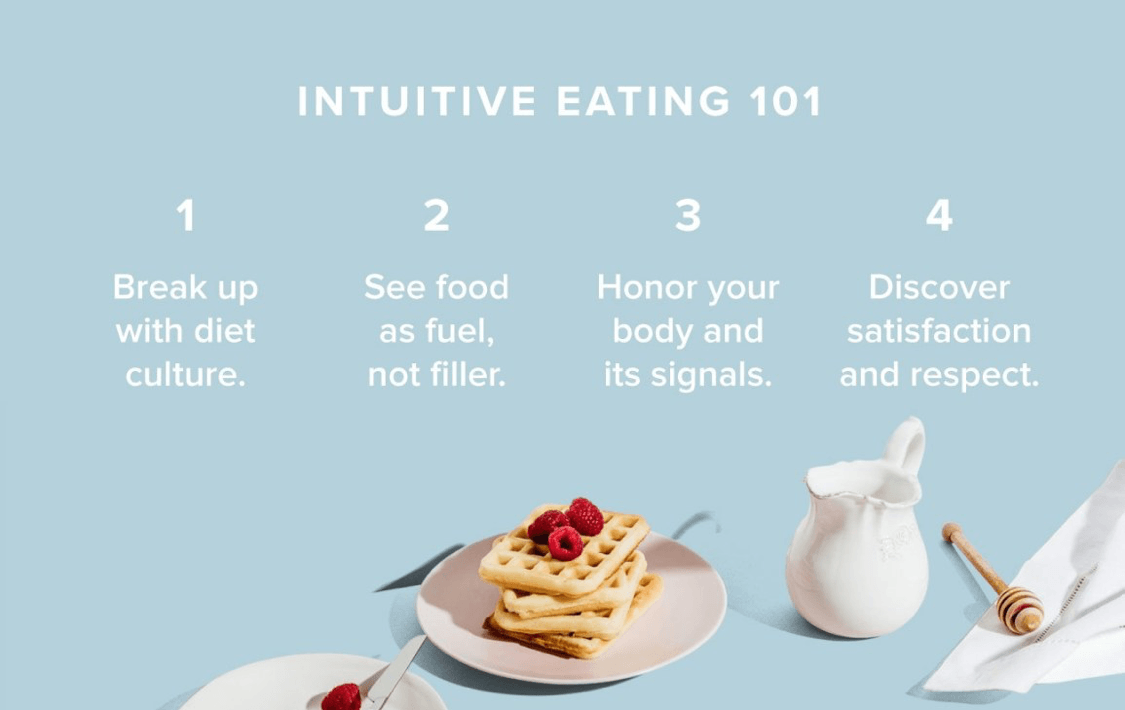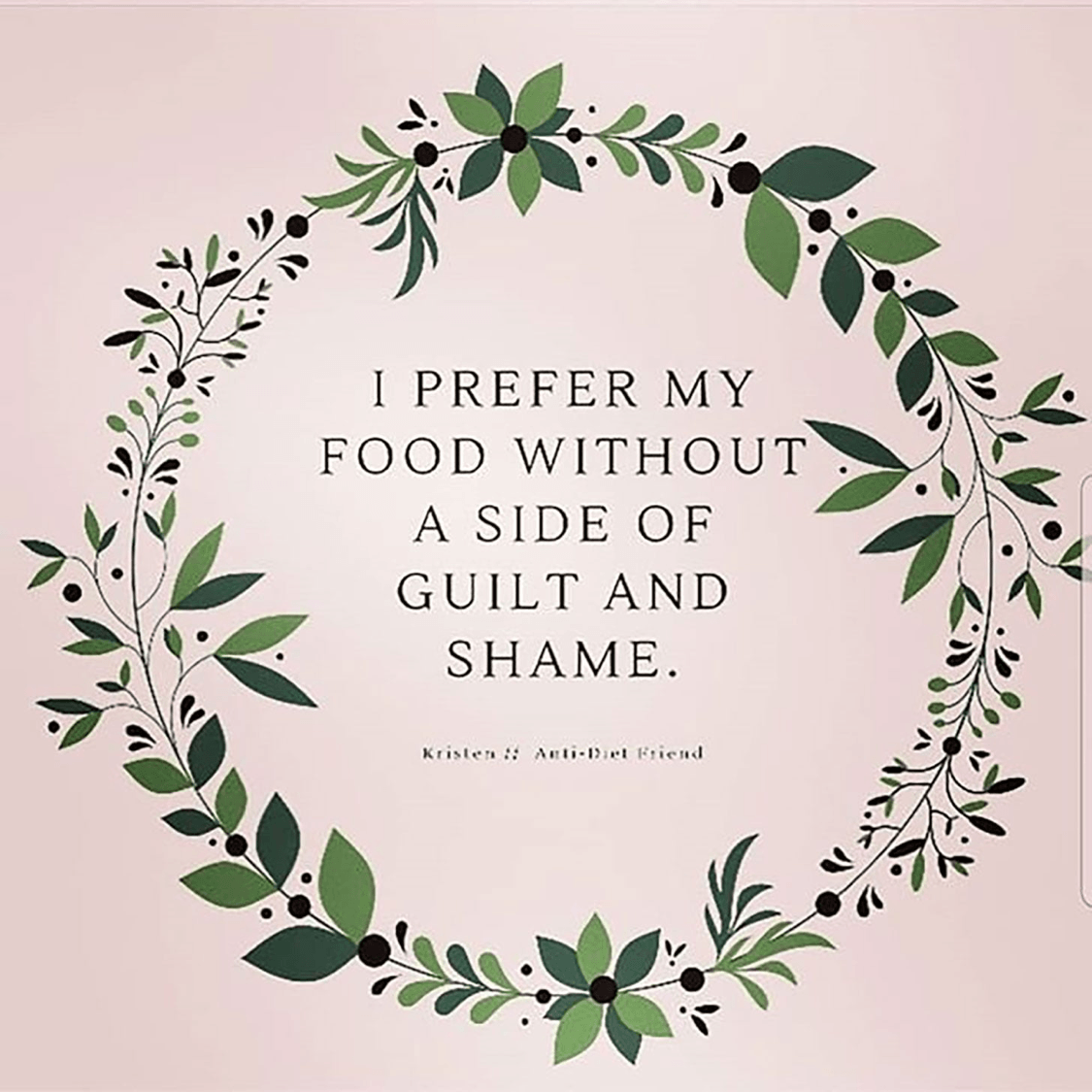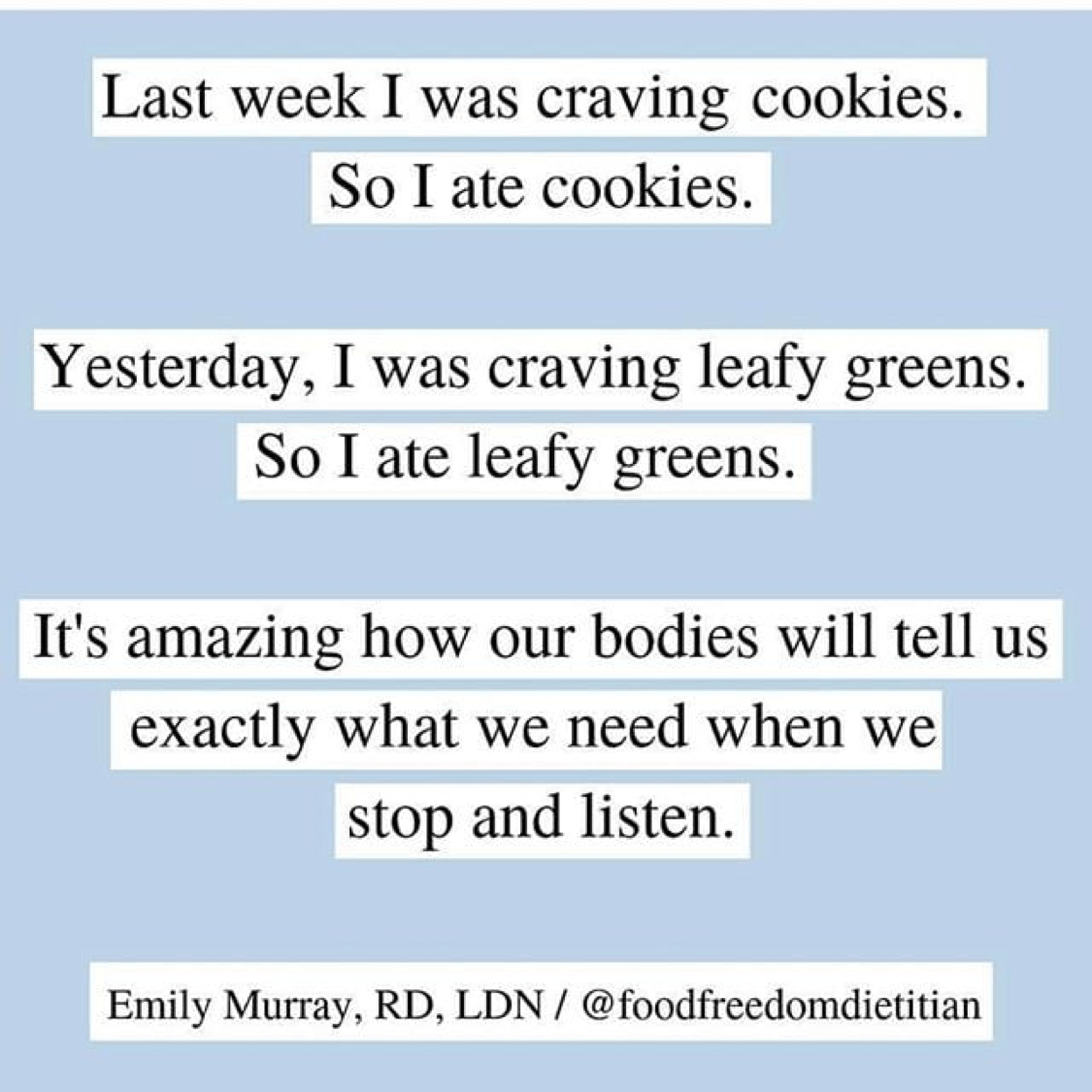The Rise of Intuitive Eating
American’s New Year’s resolutions often involve dieting – not surprising as we rank #35 on the world’s healthiest nation list and can claim obesity as an epidemic.[1] Amongst the most Google searched diets in the last 2 years only one has remained consistently in the top 10: the Noom diet.[2] Its primary source of intrigue? Looking at weight loss from a mind-body perspective, examining “food demons” and managing stress in order to keep the weight off.[3] At present, there’s another holistic approach, resurrected from its debut in 1995 that is gaining traction: Intuitive Eating. But whatever you do…don’t call it a diet.
Intuitive eating is proudly referred to as a non-diet approach to wellness. One that leans into both body and mind while following simple health-oriented rules: eat when hungry – mindful of hunger on a 1 to 10 scale, respect fullness – allowing brain and body to sync up before overeating, don’t eat your feelings – find non-food ways to address them, move – exercise, make peace with your choices – banishing guilt, and lastly, balance health and nourishment with indulgence to ensure elements of enjoyment and self-care in eating, not solely self-control.[4]

What’s most interesting about intuitive eating is that it taps into consumer preference. The reality is that U.S. Consumers are significantly more likely to view health and wellness as “feeling good about themselves” (6 in 10) vs. simply “consuming natural, wholesome foods” (3 in 10).[5] This indicates that there’s more joy in a healthy mindset than in healthy eating. Analysts attribute interest in mind-body approaches to eating as “tapping into the growing frustrations many people have with dieting. Americans are sick of the shame and fear around food, and of failure in front of the near-insurmountable odds of long-term weight loss…the lifelong pressure to diet wears people down”.[6]

We, as food and beverage marketers, can learn from this. While chasing Diet-X claims for the short-term opportunities they bring, have we missed a bigger and longer-term opportunity to boldly balance our portfolios and messaging with both healthful and indulgent, and uplift the diet-fatigued culture with permission…or even an invitation to know and listen to their own bodies and minds when making food choices?

[1] “These Are The World’s Healthiest Nations”, Bloomberg, 2/24/19
[2] U.S. News Ranks the 38 Best Diets of 2019, 2018
[3] “Does The Noom Diet Work?”, mindbodygreen.com, 1/02/20
[4] “Why Some Healthy Eating Experts Say Intuitive Eating Is the Future of Nutrition”, Well+Good, 12/19/19
[5] “Dimensions of Health & Wellness”, Hartman Group, 2019
[6] “Intuitive Eating: The Diet That Tells You to Quit Dieting”, The Atlantic, 2/22/19
